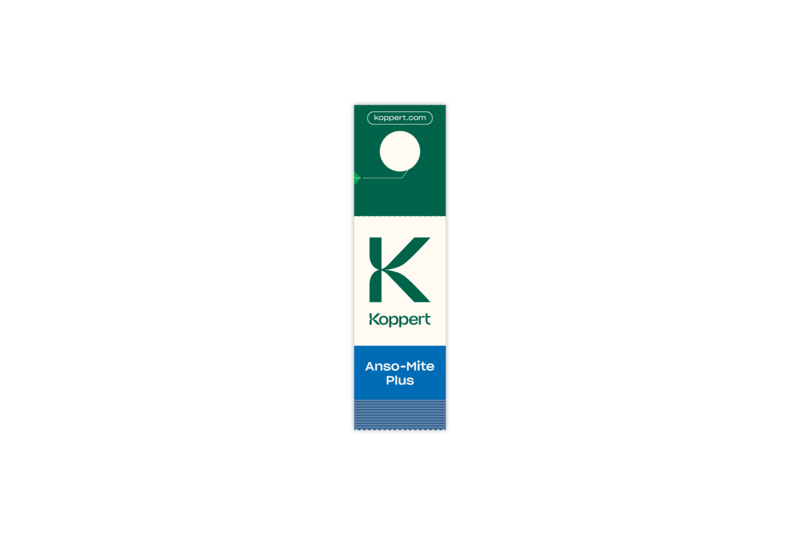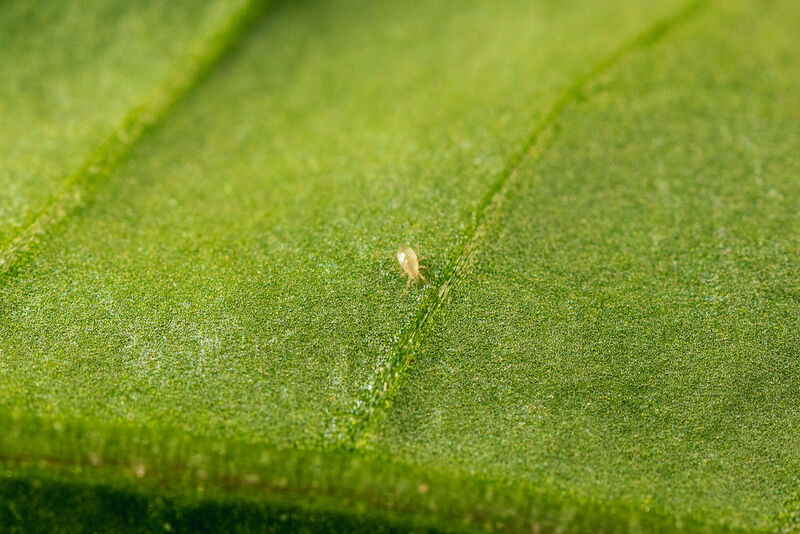
Koppert’s predatory mite Amblyseius andersoni, available in a 6-litre bucket until now, will soon be on the market in a slow release sachet, to make this biological solution for harmful Thrips even more effective and labour-saving. Soft fruit growers in the UK and Italy can expect Anso-Mite Plus to be available well before spring this year.
‘The request for a longer-lasting and more target-oriented version of Anso-Mite came from strawberry growers in the UK,’ says Koppert Product Manager, Tim Bossinga. ‘Using breeding sachets with predatory mites that can be introduced early in the season, is the solution.’
Going The Extra Mile
Unlike other Amblyseius andersoni products in sachets, Koppert’s R&D department decided to take the extra step to come to the market with a high performance slow release sachet with not one, but two feeder mites to the breeding sachet. Trials show that the sachet is active over a period of at least 4 weeks.
‘It works like a hybrid engine,’ Tim explains. ‘When the number of one feeder mite species begins to drop, the second species becomes available as an alternative ‘fuel’ for the predatory mites. We have also established that Amblyseius andersoni is fairly cold tolerant, so it emerges from hibernation earlier in the season, to establish itself in the crop before Thrips can become a problem.

Sachet Benefits
Not only do the sachets prolong the effective duration of the product, hanging them at regular intervals in the plants themselves, instead of blowing them over the crop, saves time over the extended biological control period. Sachets also prevent spillage and unnecessary waste, and the application can be better targeted.
Anso-mite Plus will initially be introduced to soft fruit growers in the UK and Italy, where trials are currently being run. These trials are being opportunely run in the field so we don`t miss the best window of opportunity for this product in early 2023. ‘We expect validation and feedback from growers by this summer, so we improve our strategy and positioning further, and can go on to introduce this product into the countries with similar crops’,Tim concludes.